This summer, Playhouse Square launched Arts & Minds in collaboration with the Cleveland Clinic—a new series of programming focuses on connecting individuals with neurological disorders to the arts in a transformative and accessible format. The first initiative under the new program is the Dance for Parkinson’s classes, which kick off with their first round of sessions this October.
Dance for Parkinson’s will engage participants and their care partners in free, weekly dance classes led by our Senior Manager of Neurological Programming Joan Meggitt.
As classes officially begin this week, we sat down with Joan to discuss her experience in dance education, her journey to getting Dance for PD® certified and her excitement for Dance for Parkinson’s fall sessions.
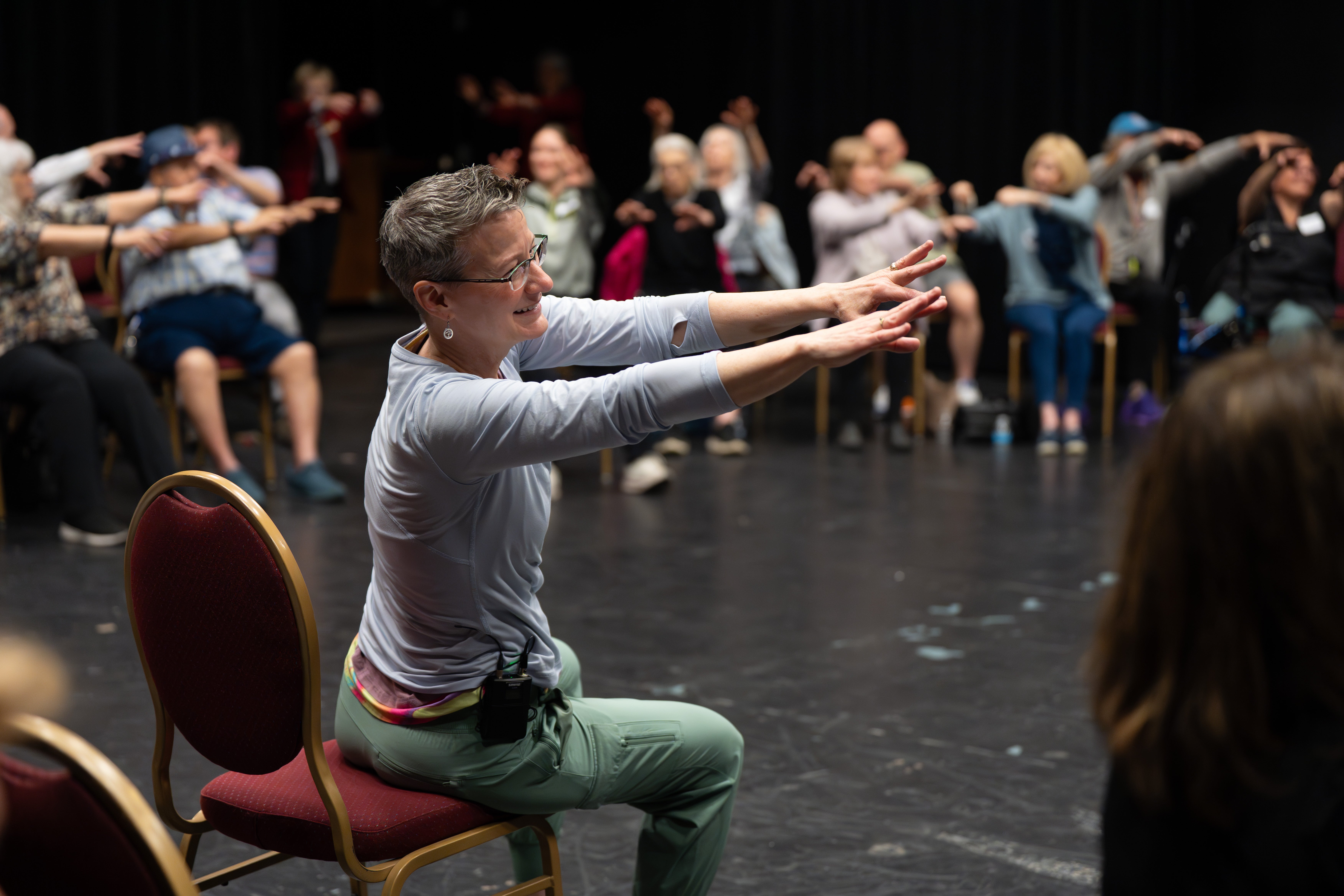
PSQ: You have an extensive background in dance. Could you take us through the experiences that led you to Playhouse Square?
Joan: Early in my dance training at Allegheny College I took dance classes and performed with community members of different ages and abilities. It was the same in graduate school at Case Western Reserve University, where adult dancers from the community were welcome in classes, and I was choreographing pieces for dancers ages 10 to 60. These experiences showed me that dance was bigger than 18-21-year-olds with the same kinds of experiences and ideas.
As a dance educator I have taught, created and performed with dancers of all ages, abilities and aesthetics. But it wasn’t until a colleague at Kent State University, Barbara Allegra Verlezza, and my mentor Kathryn Karipides started to push me in new directions that I began to see a different, dedicated path for myself. Barbara included me as a demonstrator and teacher in Verlezza Dance’s dance classes for adults with physical, developmental and intellectual disabilities, and Kathryn sent me to a Dance for PD® workshop. Over time I began to realize that my understanding of dance and dancers was limited, despite my early experiences. As I continued to work with more older adults in dance, I saw that my core values as a dancer and educator were still at work, but in a more expansive and, quite honestly, fun way. I was lucky to teach dance for people with Parkinson’s at InMotion for ten years. The organization is amazing. I would say that all of that prepared me for the work I’m doing now at Playhouse Square.
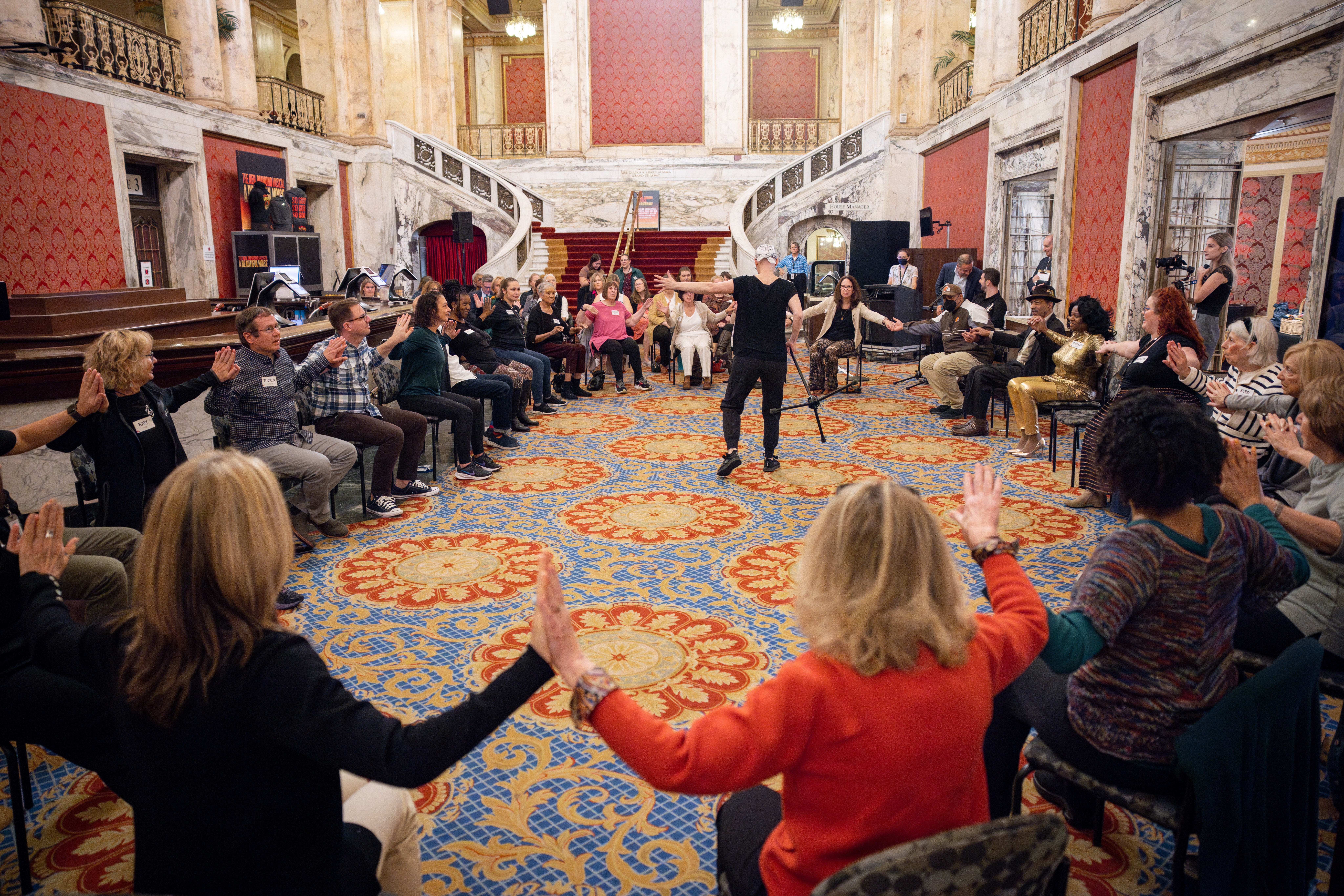
PSQ: The Dance for Parkinson’s sessions are a new opportunity for people to experience Playhouse Square. What can participants expect as they attend one of these free sessions?
Joan: First and foremost, I place a premium on joy. I like to say I’m serious about fun. I’m also serious about dance. It’s a powerful medium, and the benefits it provides are boosted by live music. My practice is to meet people where they are and, together, we explore the possibilities of movement, creativity and community. Participants can expect an accessible, supportive environment where we work together, laugh, learn and achieve.
I introduce different dance styles including modern, jazz, improvisation, ballet, folk and musical theater. We begin seated, make our way to supported standing behind our chairs or at the barre, and then move through the space. We will dance together, though everyone is encouraged to explore their own ways of moving. We will also dance with partners when we travel across the floor or in line dances, and we will sometimes explore movement in trios and quartets. Working directly with others lets us get to know one another, appreciate what we each bring to the dance and even steal some moves!
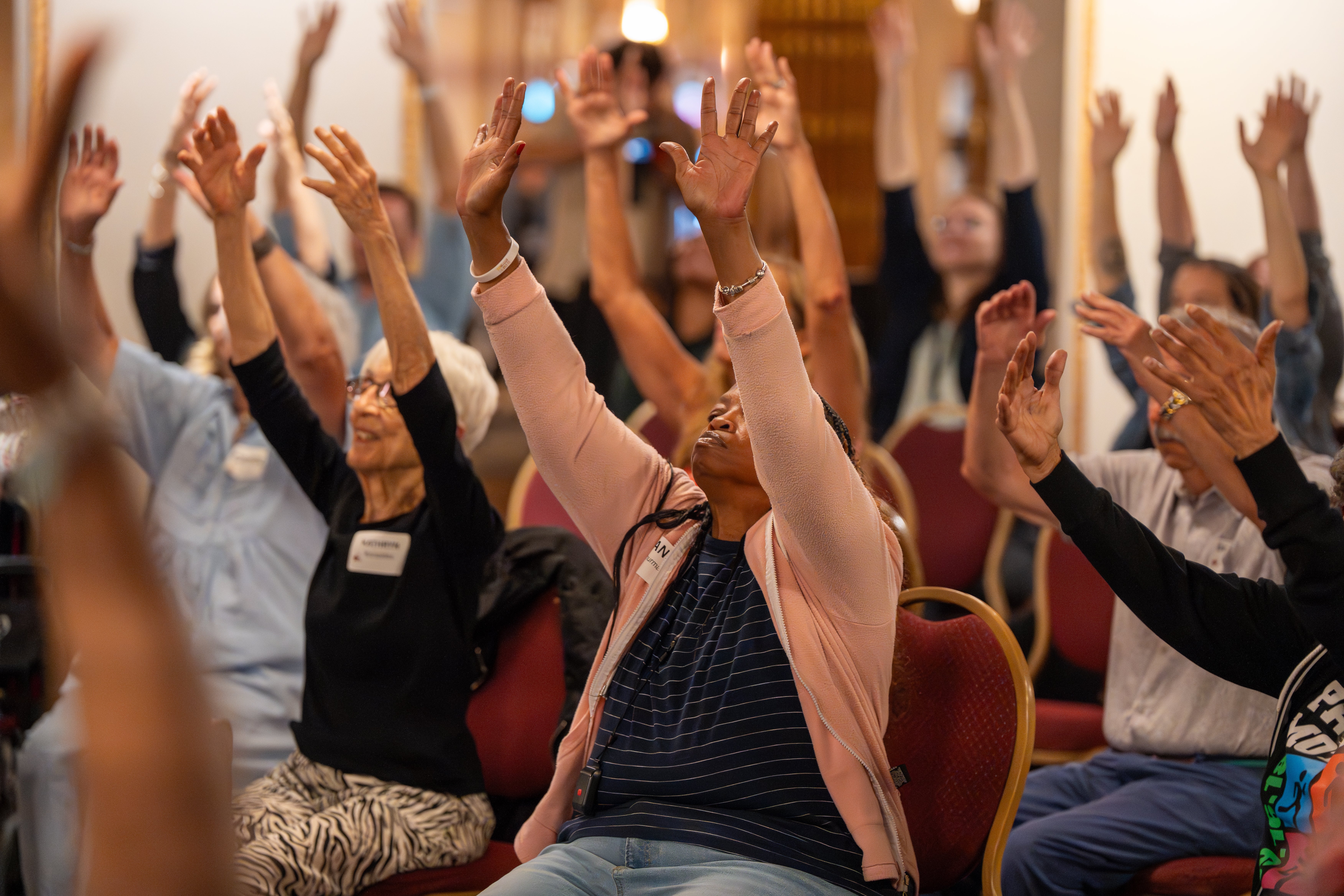
PSQ: You've been going through the process to become a Dance for PD® Certified Teacher. Congrats! Can you share a little bit about this with us?
Joan: The process has been rigorous and very rewarding. The Dance for PD approach is holistic and addresses dance, music, pedagogy, process, and research on Parkinson’s disease and dance for people with Parkinson’s. The program is challenging me to integrate different types of knowledge and apply all of it to teaching dance for people with Parkinson’s. There is also a large reflective component that has asked me to consider the different aspects of dance and teaching. I feel supported both professionally and personally by the Dance for PD certification program and people.
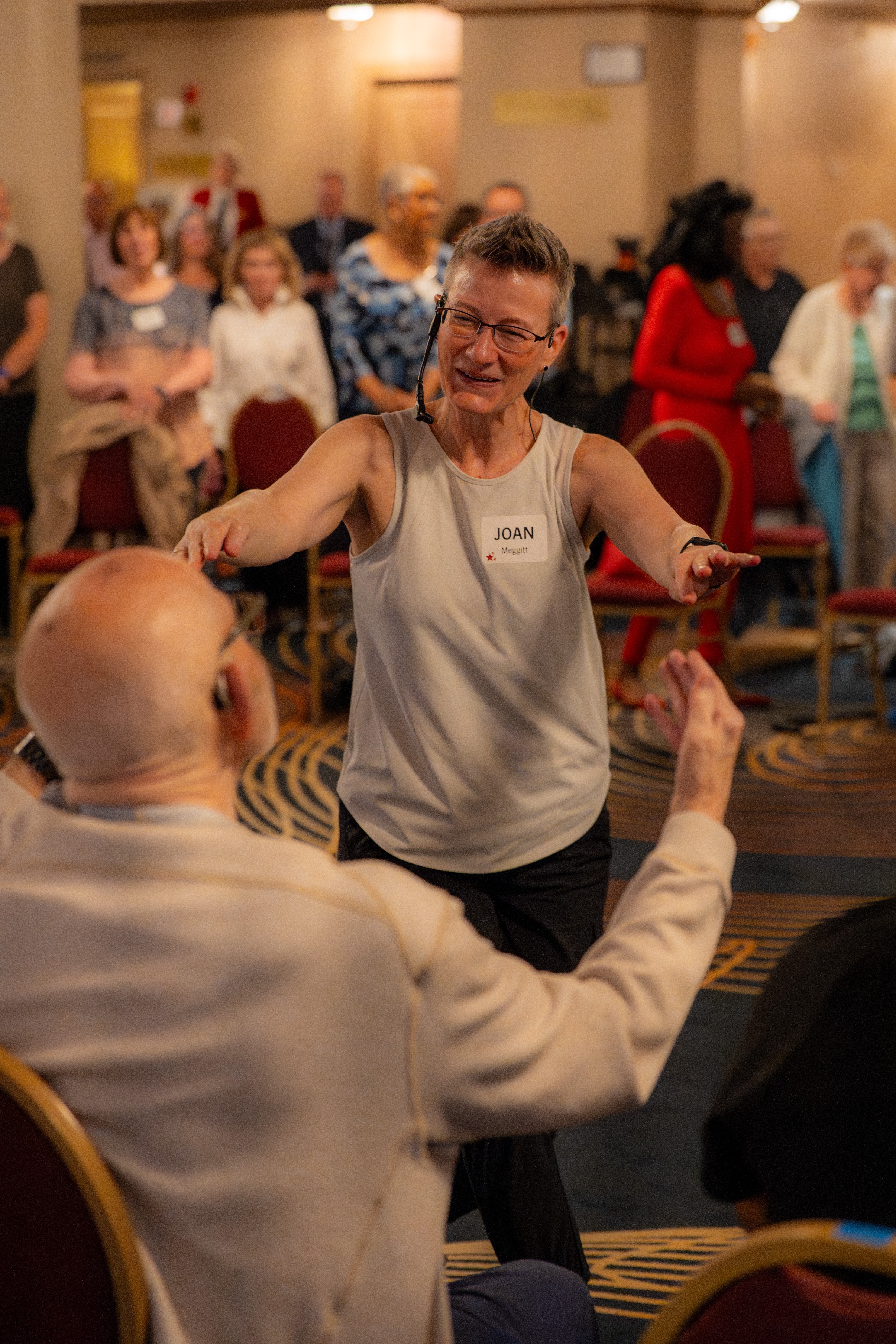
PSQ: Tell us about how you’ve been able to collaborate with Cleveland Clinic for the Arts & Minds program.
Joan: I have the great pleasure of working with Ellen Walter, CPN at Cleveland Clinic’s Neurological Institute. She has provided care for people with PD for more than 20 years and is a marvelous person and resource. She has helped me better understand the clinical and personal aspects of Parkinson’s disease. While I’ve been teaching dance for people with Parkinson’s for 13 years, and participated in research as well, my experiences have been limited to the dance studio. I have also read a great deal of research but, again, that is all theoretical; so, working with Ellen has opened up a whole new area of awareness and learning for me. She is an excellent resource, and I can go to her with questions about best practices. Ellen generously shares her clinical expertise and models a patient- or person-centered approach. On the flip side, Dance for Parkinson’s is a complementary activity that can serve as part of a holistic approach to providing care for people with Parkinson’s. The physical and cognitive practices of dance are beneficial, as are the social and community aspects. Clinicians are looking at the big picture. Similar to my dance teacher’s reminder that the dance doesn’t end when we leave the dance studio, care doesn’t end when we leave the doctor’s office.
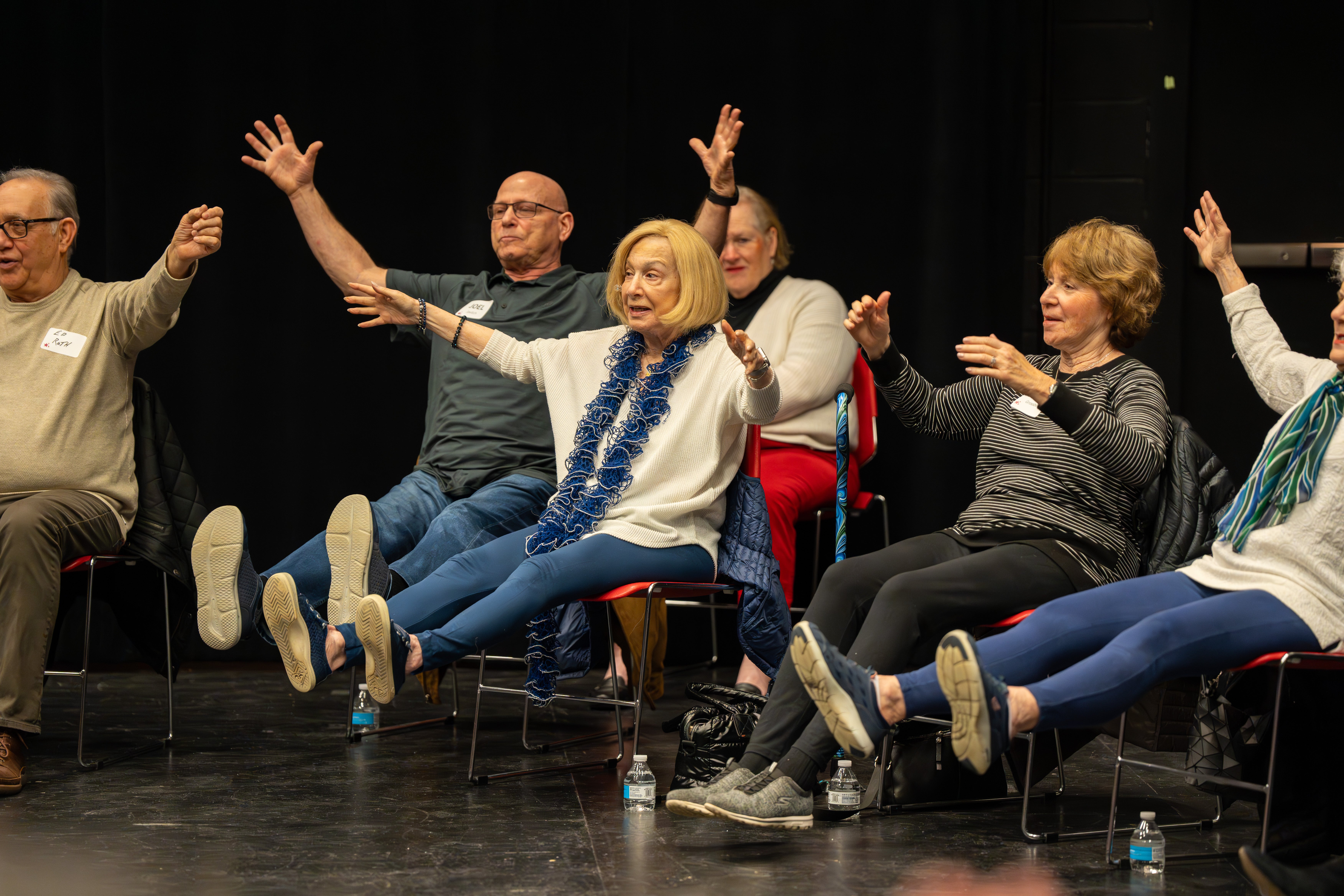
PSQ: In addition to the free classes, Dance for Parkinson’s will be offering several special events for the community. Could you tell us what kinds of things are in store?
Joan: Special events for people with Parkinson’s and their care partners feature private performances by Playhouse Square touring artists and resident companies. Guests see a short performance up close, explore some movement with me in relationship to the performance themes, speak to the artists and enjoy a small reception. The events give people the opportunity to engage with the wonderful performers who grace Playhouse Square’s stages, socialize with their community and learn more about Dance for Parkinson’s. I will be putting together a winter event and a spring event. I look forward to celebrating with the Parkinson’s community and Playhouse Square performing artists!
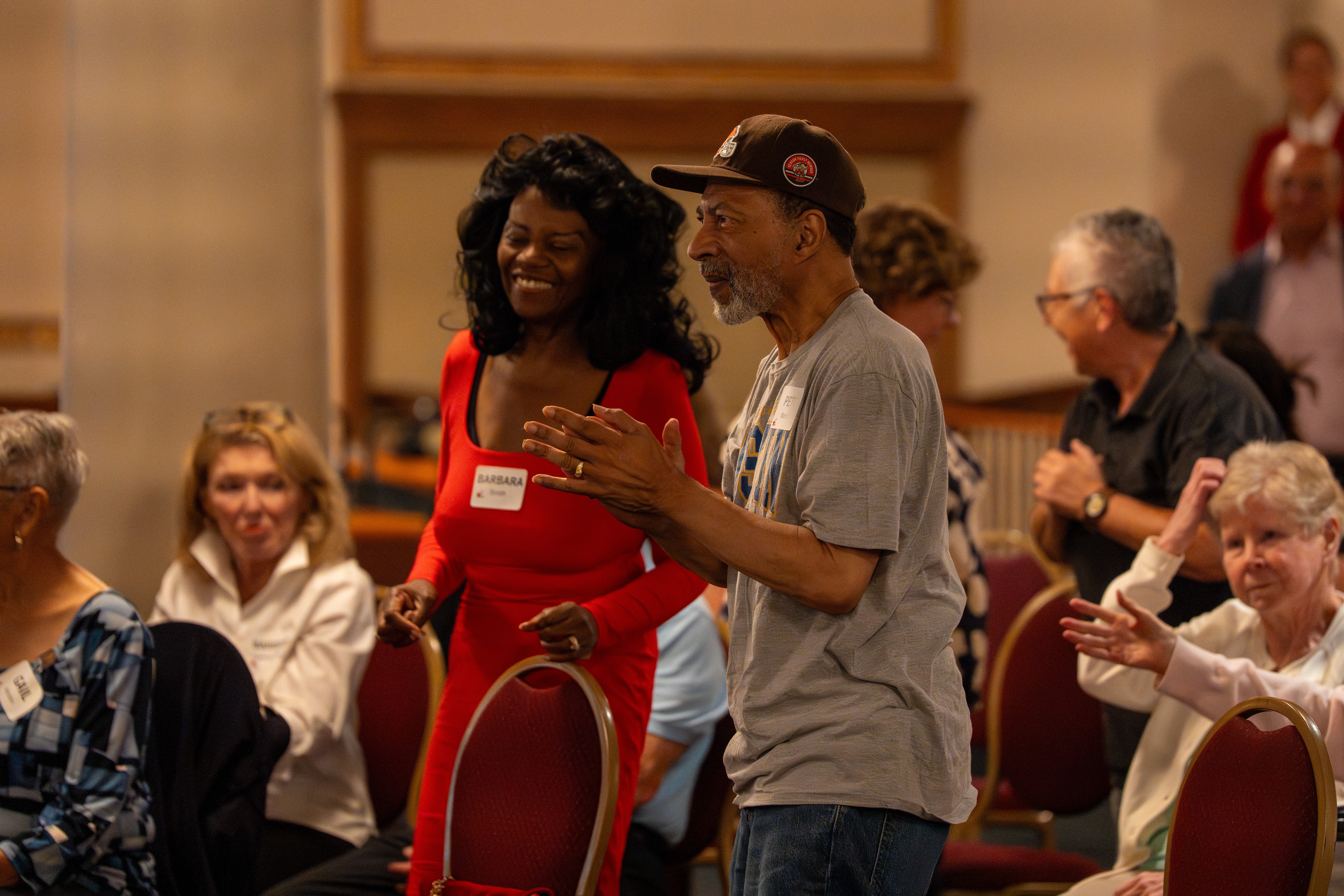
PSQ: What has been the most rewarding part of the program so far?
Joan: The most rewarding part of the program is being in community with people. I truly enjoy getting to know people through movement and creative action. I am also grateful that so many people are taking this leap with me - from the people with Parkinson’s and their care partners to the dance artists who will be leading classes with me and the collaborative pianist creating inspiring music for classes. I have found everyone is generous in spirit, willing to try anything and ready to have fun. My sense is that we bring out the best in one another, and I endeavor to support and amplify that. I also enjoy the fact that we’re all learning together. We all have something to offer, and we’re sharing it freely with one another. No matter how long I teach, how many classes I teach and how many people I work with, there is always more to learn.
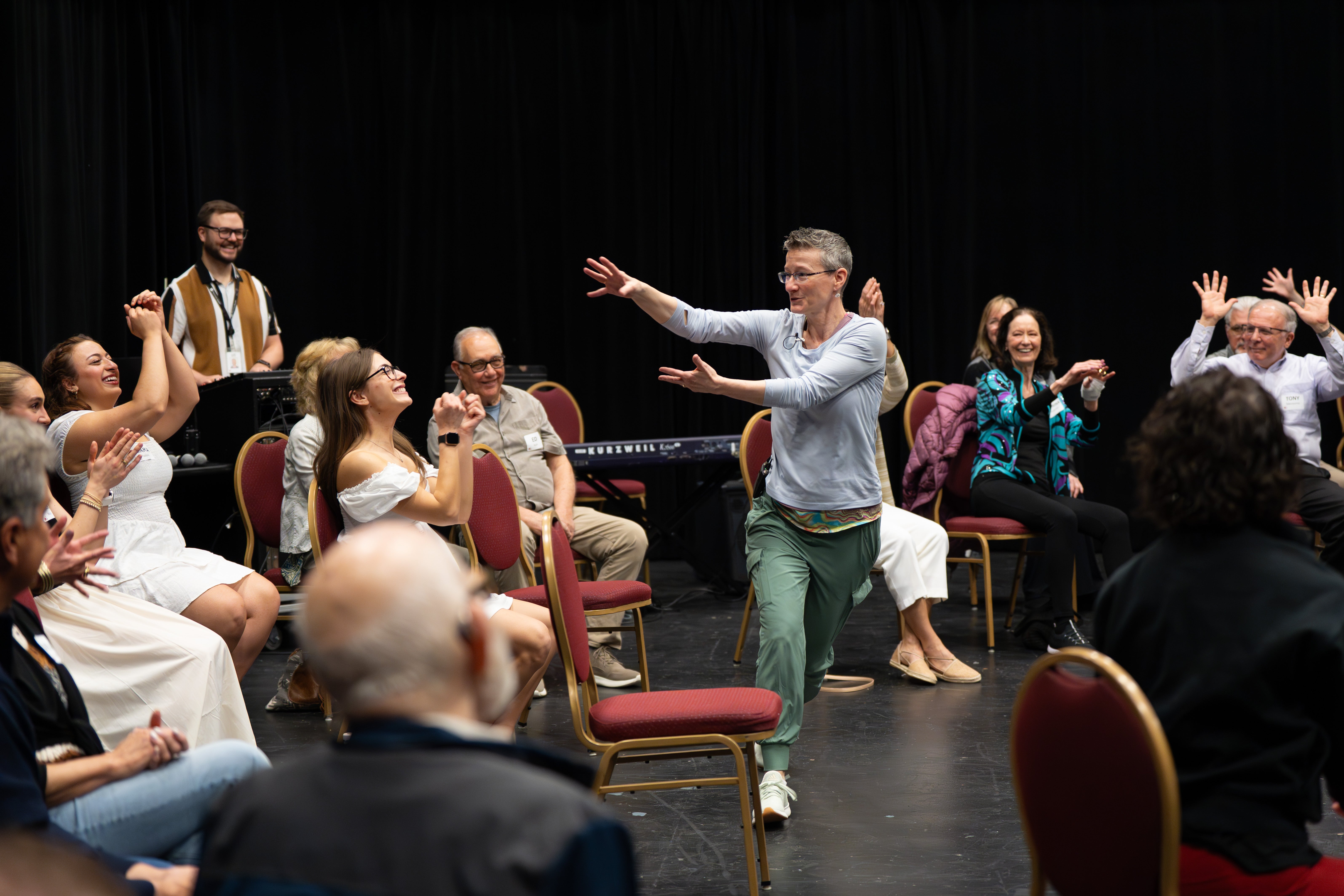
PSQ: What do you hope your participants and care partners are able to take away from the Dance for Parkinson’s classes?
Joan: I hope that everyone takes the joy and laughter with them. I hope they gain insights into dance and movement and take that with them into their daily lives. People think I’m joking when I encourage them to jazz walk down the grocery aisle and to be ‘regal and relaxed’ on the bus. It’s really a mindset or a mind/body perspective. My first dance teacher always said, “It’s not the hour you spend with me in class; it’s how you move through the other 23 hours of your day.” More than anything, I hope participants feel heard, appreciated, respected and part of a larger creative community of people with and without Parkinson’s.
The Dance for Parkinson’s fall session is now open for registration. For more information on Playhouse Square’s Arts & Minds programming or to register for a class, please visit playhousesquare.org/arts-minds.